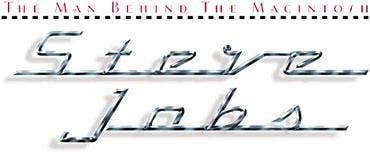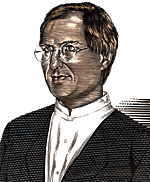A Look Back: CRN Inducts Steve Jobs Into Industry Hall of Fame
At Comdex 1997, CRN launched the Industry Hall of Fame, honoring 15 technology visionaries for "laying the foundation for the new information age." Steve Jobs, newly returned to Apple, was one of those honorees. His CRN profile, posted at the time, appears below. We felt it appropriate to take a look back at what made Jobs such a unique leader in the wake of his passing Wednesday.
By Lisa Picarille
"He is aware of the effect he has on people and plays it up. It's deliberate."
--Ellen Hancock, former Apple chief technology officer


It's Steve Jobs' world and we just live in it, but please don't upset Frank Sinatra by telling him it's time to pass along that distinction.

TITLE: Co-founder, interim chief executive, board member, Apple
HOW LONG AT COMPANY: 1976-1985; 1997
BIRTH DATE & PLACE: February 1955; Cupertino, Calif.
EDUCATION: One semester at Reed College, Portland, Ore.
SIGNIFICANT ACCOMPLISHMENT Co-founded Apple; delivered the Macintosh operating system
Ol' Blue Eyes and Jobs have many things in common--legendary fame, the adoration of millions, buckets of money, that undeniable charisma, and well-documented tempers.
But the glitzy, hard-drinking, hard-living Rat Pack style that is vintage chairman of the board is a stark contrast to Jobs, the brilliant, often barefoot, strictly vegan, driven, mercurial entrepreneur who espouses Eastern philosophy while maneuvering to restore the shine to his "insanely great" Apple Computer Inc.
Both are consummate showmen, but Frank is Las Vegas. Steve is pure Silicon Valley. After all, Jobs is credited with putting northern California's sleepy orchard region on the map in 1976.
That's when Jobs sold his Volkswagen, and engineering pal Steve Wozniak sold his Hewlett-Packard scientific calculator to raise capital to start Apple in Jobs' parents' Cupertino, Calif., garage.
Armed with $1,300 from the sale of their precious belongings, Jobs began begging for credit from local electronics suppliers, and later that year Apple delivered a $666 machine called the Apple I. Marketing the computer to eager hobbyists, Apple earned $774,000 from sales of the Apple I.
The Apple II, a favorite with the education market, followed a year later. Within three years, revenue from the Apple II reached $139 million. That 700 percent annual growth rate wouldn't go unnoticed or unchallenged, however. IBM Corp., then supplier of mainframes and minicomputers, was getting into the market and Jobs needed help to stave off the impending attack from Armonk, N.Y.-based IBM.
Jobs hooked up with A.C. "Mike" Markkula, an older, wealthy, laid-back, venture capitalist, who personally invested an undisclosed amount, estimated to range from $91,000 to $250,000. Markkula, said to be the most powerful man at Apple for two decades, helped the company secure $600,000 in venture capital and hired Mike Scott, Semi Conductor Inc.'s director of manufacturing, to be Apple's first president. Three years later, in 1980, Apple went public at $22 a share and ended up with a valuation of $1.2 billion.
But IBM was muscling into the PC business and, two years after introducing its first PC, IBM's sales passed Apple's. With IBM's DOS-based PC setting the standard, Apple needed another hit and so did Jobs.
Mike Scott quit and in 1983 Jobs recruited PepsiCo Inc. marketing guru John Sculley to run Apple. An odd pair--Jobs the young counterculture entrepreneur, Sculley an East Coast suit with no technical background--forged a strong working relationship that eventually would be Jobs' undoing.
While working together, the two managed to deliver a counterpunch to IBM's PC--the Macintosh. "The computer for the rest of us," is how the shrewd Jobs, who only attended one semester at Portland, Ore.'s Reed College, marketed the computer that sparked the PC revolution.
Over the years, Jobs has become a god to the millions who display a freakish loyalty to the platforms he helped create. For them, the Macintosh is a religion. And Jobs is Apple's savior, the only man capable of saving the their beloved company from fast becoming a computer industry punch line.
A laundry list of associates and co-workers, some who butted heads with Jobs and often lost their jobs for the privilege, still describe him as charismatic, articulate, brilliant, and very, very, intense.
Amy Wohl, editor of TrendsLetter, an industry newsletter in Narberth, Pa., recalls a breakfast meeting with Jobs back in the fall of 1983 when she was consulting Apple on how to market to corporate types the forthcoming Macintosh computer that would be launched to much fanfare in January 1984. "Intensity is a big part of Steve. And you could see that making the Macintosh a huge success was very important to him personally. I kept waiting for the booth we were sitting in to burst into flames," says Wohl.
But there are those, including some of his closest confidants, who claim Jobs is a control freak--calculating, impatient, dismissive, egomaniacal and, sometimes, immature. "He is everything anyone ever said about him, yet he is none of those things," says one source who worked with Jobs very closely on a daily basis for several years.
The Jobs who stands at the pulpit is the legend. To see Jobs speak in public is to witness his magic, a gift that entrances, mesmerizes and leaves most suspended briefly in a euphoric state.
"He is aware of the effect he has on people and plays it up. It's deliberate," says Ellen Hancock, a 27-year veteran of IBM and Apple's former chief technology officer. "I appreciate his ability, but often he is not correct and changes history [to suit his purpose.] It's Steve's famous reality distortion field, and I don't understand why more people don't call him on those things," says Hancock.
NEXT: Jobs' Personality Is A Force To Be Reckoned With Others who worked with Jobs agree.
"I think he is extremely skilled at creating a perception," says Jean-Louis Gassee, a former chief technology officer at Apple, who is now chief executive of Be Inc., Menlo Park, Calif. "Steve knows [by] looking at any one of us what we want. That makes him very dangerous."
But Jonathan Seybold, who has known Jobs for almost 20 years, says with Jobs, what you see is what you get. "His on-stage mannerisms are not for effect and [he] does not act differently with different groups of people. Steve is just Steve."
Hancock, and others, are quick to point out that anyone who discounts the role Jobs' personality will play in helping to turn around Apple is foolish. Jobs is a force to be reckoned with.
In less than a year, Jobs has managed to sell off his tiny Next Software Inc. to Apple for more than $430 million; help oust Gilbert Amelio, the chief executive who brought him back into the fold; replace most of the top management at Apple with his Next lieutenants; strike a wide-ranging partnership with once-archrival Redmond, Wash.-based software behemoth Microsoft Corp.; and perform a long-overdue makeover of Apple's board of directors.
Moving so quickly in such a short time is not new for Jobs. He was a billionaire before he was 30. The year the Mac debuted, 1984, was the heyday of Cupertino, and Apple was the counterculture computer company that embraced the 1960s' values of being unconventional and trying to change the world.
But the shine wore off quickly and in September 1985 after a legendary boardroom showdown with Sculley, Jobs left the company. Sources close to Jobs said he was "bitter, hurt, sad and lost." Spitefully, Jobs sold off all but one share of his $20 million in Apple stock.
On Dec. 16, 1996, Apple spent more than $430 million to purchase Jobs' Next, and Jobs was made a special adviser to Amelio. Sources inside Apple said Jobs was able to "charm Amelio," who was ousted from Apple in July in a move reportedly orchestrated by Jobs.
At 42, Jobs retains not only his boyish charm, but also his uncanny ability to seemingly hypnotize and mesmerize a string of older, very intelligent, highly successful businessmen with his youthful exuberance.
For now, Jobs has a string of heavy hitters offering support. Jerome York, the darling of Wall Street for his operational and critical role in turning around Chrysler Corp. and IBM, joined Apple's board at Jobs' behest.
"Steve is clearly a brilliant individual and very much a goal-oriented person. When he gets on something, he gets on it hard. I have been very pleased with the decisions he has made since I've been involved with Apple," says York.
Ed Woolard, the former chief executive of DuPont, who by all accounts is now the most influential member of Apple's board, is said to be extremely fond of Jobs.
With the beefed-up board handpicked by Jobs and Jobs now calling the shots, the charismatic founder of Apple is once again in the driver's seat.
And for now it's 1984 all over again. Good or bad, Steve Jobs is doing it his way.